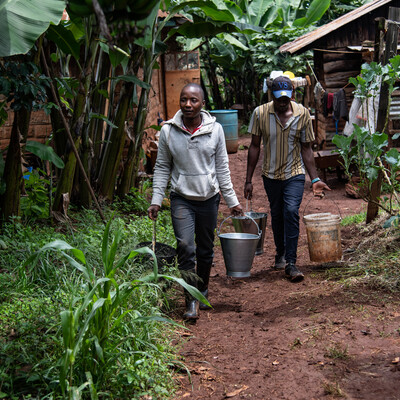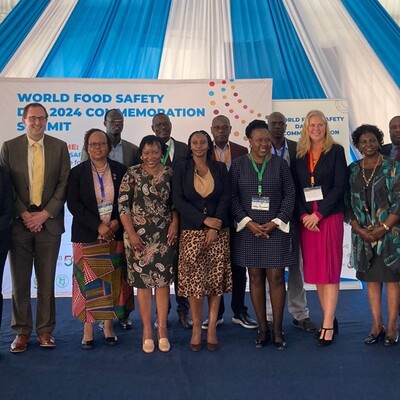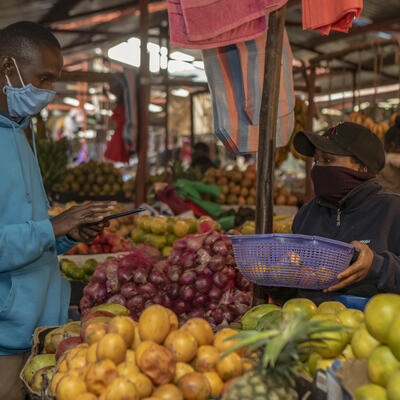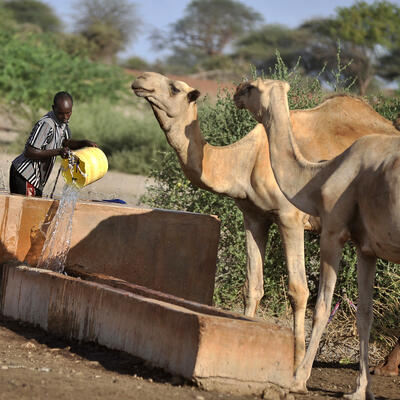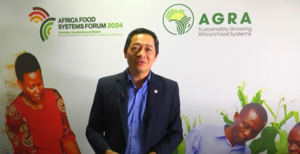

Policy and institutional landscape analysis in Kenya's food, land and water systems
The CGIAR Initiative on National Policies and Strategies (NPS) for Food, Land, and Water Systems Transformation seeks to explore and suggest recommendations to build policy coherence, integrate policy tools, and respond to crises on food, land, and water issues. To achieve these goals at the country level, the initiative works closely with ministries responsible for agriculture, food, land, water, natural resources, and planning.
In a recent study, the NPS undertook an analysis of selected policies relating to food, land, and water systems for coherence in Kenya. The study identified 27 policies and strategies in food, land, and water (FLW) sectors and interviewed 20 key informants from 18 organizations. Eighteen of the 27 policies and strategies were in agriculture, two on livestock, two on fisheries, two on land, and three on water.
The policies were then scored for content against the five CGIAR impact areas because they align very well with Agenda 2030 on Sustainable Development Goals (SDGs) and Kenya’s priorities in food, land, and water systems as elaborated in the Agriculture Sector Transformation and Growth Strategy, the Big Four Agenda, and the Bottom-Up Economic Transformation Agenda (BETA). The five CGIAR impact areas are i) climate adaptation and mitigation, ii) environmental health and biodiversity, iii) gender equality, youth, and social inclusion, iv) nutrition, health, and food security, v) poverty reduction, livelihoods, and jobs.
Findings from the study indicate that food, water, and land policies in Kenya respond to social, economic, and political changes to some extent. An effort has been made to incorporate reliable data to analyze trends and impacts to ensure that policies are effective and efficient. This underscores the positive impact of the policies. However, the policy-making process was found to be lengthy and expensive, thus making it less optimal, although coordination mechanisms are in place.
‘The cost of developing a single policy varies between KSh 15 million and KSh 50 million, which largely goes towards ensuring compliance with the constitutional provisions of public participation’, says Joseph Karugia, the CGIAR Country Convenor for Kenya and a co-author of the report.
Further findings from the analysis show that the policies reviewed positively impacted more than one area, complementing each other. However, there were inconsistencies between some policies. For instance, Kenya's land policy promotes the subdivision of large farms into smaller plots, leading to agricultural land fragmentation. This has had negative consequences for agriculture, as smaller plots of land are less efficient and less productive than larger farms. On the other hand, the water policy aims to conserve water resources and protect them from depletion and pollution, which contradicts increased food production, which entails increased water consumption. The other incoherencies were in three areas, namely, catchment protection and environmental health, social exclusion in the access to water, land use, and tenure, and the lack of consensus on national outcomes across sectors.
Lack of capacity among key stakeholders is also significant.
‘Ministries, departments, agencies, and counties cannot develop quality policies and strategies. As a result, many policies lack actionable points and do not incorporate cross-cutting issues. Given the constitutional requirement to ensure public participation, many drafts fail at various points. At the same time, most civil society organizations cannot effectively check food, land, and water policies’, further notes Karugia.
This highlights the crucial role of public participation in the policy-making process, making the audience feel empowered and integral to the process.
The study, therefore, suggests some recommendations to address the challenges noted and hence improve the policy and institutional landscape in Kenya's food, land, and water systems. Firstly, the government and stakeholders are advised to define clear national goals and policy outcomes, which can be achieved with help from national and international policy analysts in the country. Technical expertise can, in turn, enable the national government to take responsibility for shepherding policy formulation and implementation processes. Leveraging digital technologies for data collection and analysis to develop coherent policies is also vital to improve data quality and reliability. This is vital since the study established that there is often a lack of reliable data and evidence-based research to inform agricultural policymaking in Kenya. Building capacity is another recommendation geared towards improving the human, financial, and institutional capacities to ensure a standardized process and requirements of developing policies. In addition, the establishment of a policy-coordinating unit is proposed, which would help improve the quality of policies, ensure standards such as mandatory participation by all crucial stakeholders are met, ensure policies are made on time and within budget, and ensure that evaluation of the policy implementation is done to assess impact. This unit could be a game-changer in policy coherence and integration.
More findings of the report can be found in the full report here …
You may also like
Related Publications

The African Animal Breeding Network as a pathway towards genetic improvement of livestock
- Djikeng, Appolinaire
- Olori, V.E.
- Houaga, I.
- Aggrey, S.E.
- Okeyo Mwai, Ally
- Ibeagha-Awemu, E.M.
- Mrode, Raphael A.
- Chagunda, M.G.G.
- Tiambo, Christian K.
- Rekaya, R.
- Nash, O.
- Nziku, Z.
- Opoola, O.
- Ntanganedzeni, M.
- Ekine-Dzivenu, Chinyere C.
- Kahi, A.
- Okeno, T.O.
- Hickey, J.M.
- Negussie, E.
- Rege, J.E.O.

Advancing the Science of Scaling Through Co-Learning: Insights from the 2024 Science of Scaling Webinars
- Kihoro, Esther
- Schut, M.
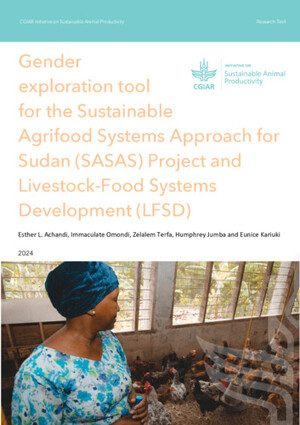
Gender exploration tool for the Sustainable Agrifood Systems Approach for Sudan (SASAS) Project and Livestock-Food Systems Development (LFSD)
- Achandi, Esther L.
- Omondi, Immaculate A.
- Terfa, Zelalem
- Jumba, Humphrey
- Kariuki, Eunice

Policy and institutional landscape analysis in Kenya's food, land and water systems
- Kimani, Judy
- Karugia, Joseph T.





